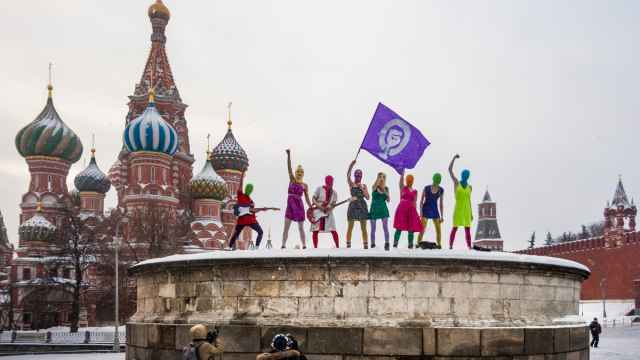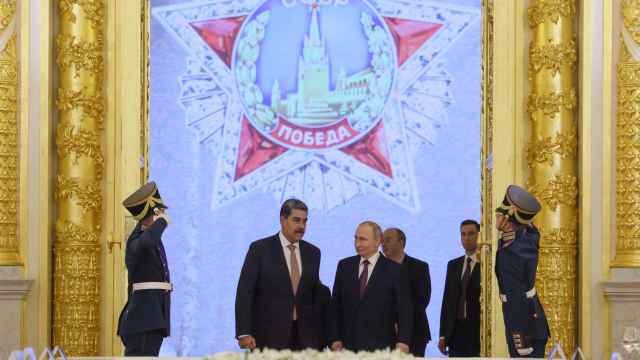Prime Minister Vladimir Putin would do himself and the country a favor if he took a close look at a scandal unfolding in Germany.
German politician Silvana Koch-Mehrin resigned late Wednesday as vice president of the European Parliament and from the leadership board of her Free Democratic Party amid claims that she plagiarized her 2001 doctoral thesis on the Latin Monetary Union. Koch-Mehrin has not commented on the allegations, and her alma mater, Heidelberg University, has opened an investigation.
But the affair is turning heads across Europe, not the least because Koch-Mehrin is the second prominent German politician to quit this year over plagiarism allegations. Defense Minister Karl-Theodor zu Guttenberg, once considered the brightest star in German politics, resigned in March after admitting to cheating on his doctorate on constitutional law.
To be sure, academic cheating occurs far too often in every country, not just Germany. Iraq opened an investigation in March into allegations that dozens of lawmakers held fake degrees, and Pakistan ordered a similar check of 160 elected officials last year.
Putin, however, has stubbornly refused to comment on allegations that he plagiarized a dissertation that earned him a doctorate in economics in 1996. Analyst Clifford Gaddy first suggested five years ago that key parts of Putin’s dissertation were lifted from a 1978 U.S. business school textbook, and he insisted in a Moscow Times interview last month that the document was “a clear case of plagiarism.”
Putin’s spokesman has dismissed the claims as “slanderous.”
But how can the Kremlin’s much-touted crackdown on corruption be taken seriously with this ugly shadow hanging over the head of the national leader?
Indeed, it would be very humbling for Putin — who has never publicly admitted to being wrong — to concede that his dissertation had fallen short of academic standards. But the public would certainly show understanding if he said something like, “I got caught up in the fever of the wild 1990s and made a mistake.”
Unlike in Germany or even Iraq, such an acknowledgement would hardly cost Putin his job or significantly affect his high popularity ratings.
More important, by laying the dissertation fiasco to rest, Putin would send a strong signal in a country where university dissertations and degrees are sold freely and many politicians hold questionable academic titles. Plagiarism becomes a matter of national interest when it engulfs civil servants — who by definition should serve the public by upholding the law and showing leadership through example. Putin needs to show that no elected official is above the law in this election year — particularly if he decides to run for another presidential term.
A Message from The Moscow Times:
Dear readers,
We are facing unprecedented challenges. Russia's Prosecutor General's Office has designated The Moscow Times as an "undesirable" organization, criminalizing our work and putting our staff at risk of prosecution. This follows our earlier unjust labeling as a "foreign agent."
These actions are direct attempts to silence independent journalism in Russia. The authorities claim our work "discredits the decisions of the Russian leadership." We see things differently: we strive to provide accurate, unbiased reporting on Russia.
We, the journalists of The Moscow Times, refuse to be silenced. But to continue our work, we need your help.
Your support, no matter how small, makes a world of difference. If you can, please support us monthly starting from just $2. It's quick to set up, and every contribution makes a significant impact.
By supporting The Moscow Times, you're defending open, independent journalism in the face of repression. Thank you for standing with us.
Remind me later.





